
Indonesian domestic helpers on sex abuse, slavery-like conditions they endure working overseas
Women tell heartbreaking stories about the sacrifices they make – and the dangers they face – toiling abroad to support families at home
Ernawati made great sacrifices for the well-being of her family. She was married at 14 to a man six years her senior and became the breadwinner two years later, when she first travelled to Saudi Arabia, to work as a domestic helper. She never complained, we are told, and earned enough to pay for one of the best houses on the rural outskirts of Sukabumi, a chaotic city of 318,000 people in West Java, Indonesia.
Ernawati now spends her days chained up in a small storeroom in the house she worked so hard to build, bound in such a way that she cannot properly stand. Now 23, she has no window or light and the door to her room remains closed for most of the day. She is forced to relieve herself where she lies, and most of the time she eats nothing other than rice and vegetables.
Her crime? She has been diagnosed with schizophrenia and “we can’t even afford to take her to the hospital”, says her mother, Abtyah. “We can’t let her free because she harms herself and others. Even if I leave her a longer chain, she will start to kick the wall until her feet bleed,” she adds.
“Someone visits her every five days to provide medication – mostly sedatives such as diazepam – but we can’t force the family to improve her living standards,” says Sugih, a health worker at the rudimentary Sukabumi health centre. “It’s not uncommon for those who suffer mental disorders to be chained in Indonesia.”
According to a 2016 report by Human Rights Watch, more than 18,000 people with mental illnesses are chained or locked up in the country. This practice even has a name – pasung. It was banned in 1977 but authorities admit that it still continues and have drafted a plan to fully abolish it next year, a plan that appears doomed from the start.
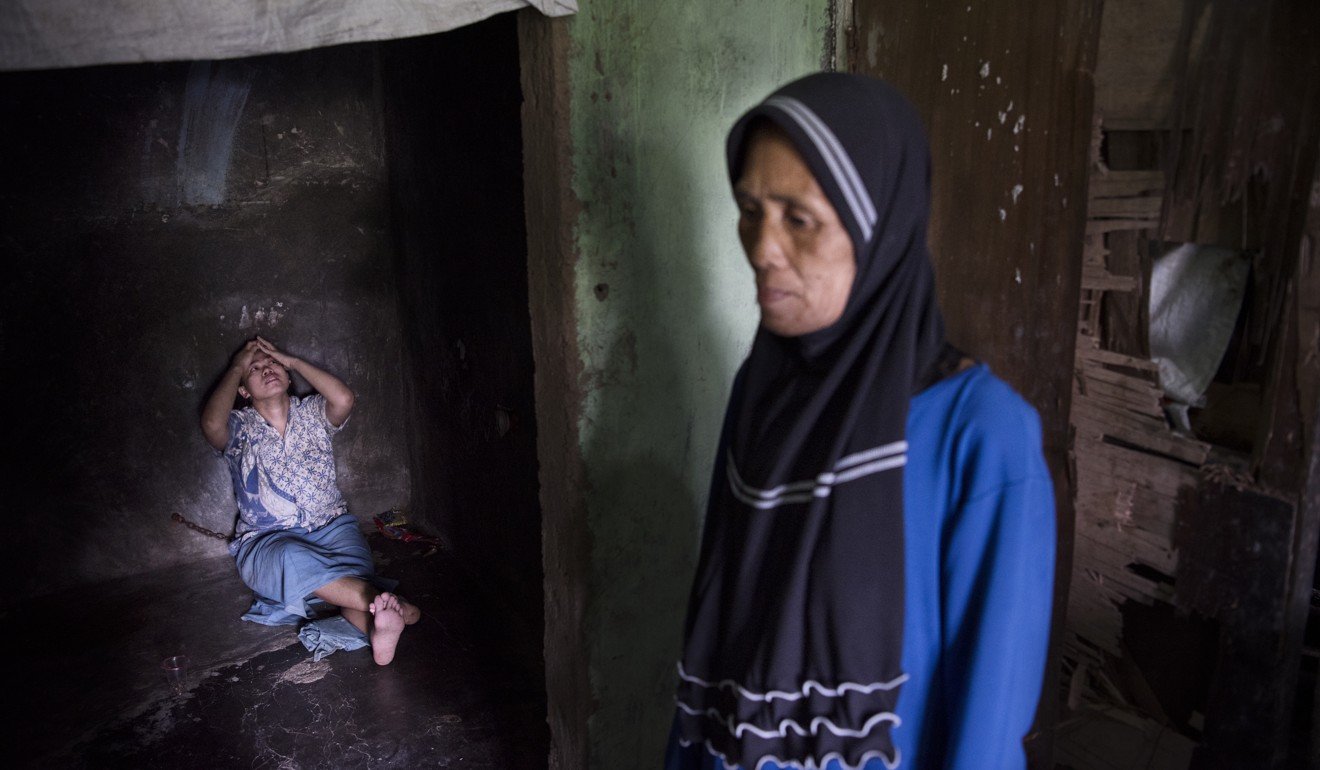
“If free treatment is still restricted to 40 days only, families will keep their relatives locked up,” says Abtyah, who doesn’t believe that Ernawati is schizophrenic. In her opinion, her daughter’s distress has something to do with the last job she had.
“It was her third trip [to Saudi Arabia],” Abtyah says. “She stayed for two years the first time and 19 months the second. She was happy and made a good deal of money.” But everything changed in 2016, when she again returned to the Saudi capital, Riyadh. “She wanted to earn enough to provide a good education for the [three] children, aged between two-and-a-half and nine. A month later, I got a call from the consulate. They told me she was unwell and that she would be sent back.”
Sukabumi authorities picked Ernawati up in Jakarta and took her to the local hospital.
“She was a different person,” Abtyah says. “She was violent and refused to talk. Doctors said she was suffering from some kind of trauma, but soon Ernawati started to say that she couldn’t remember what happened to her in Saudi.”
Doctors thought she might have been a victim of abuse at the home she was working in, but still diagnosed her as schizophrenic.
Her mother opens the storeroom and Ernawati greets us with a broad smile. Her room smells. “Do you know why your mother keeps you like this?” I ask, through a translator. “I don’t know. But if she releases me I promise to be good,” says Ernawati.
I ask whether something happened in Saudi Arabia. “I can’t remember.” Ernawati pulls her hijab over her hair and begins singing verses from the Koran.
“Her husband fled when he saw her in this condition,” says Abtyah, failing to hold back her tears. “My husband died in 2014, and I can’t make enough money to sustain everyone.”
[When Ernawati came back from Saudi Arabia] she was a different person. She was violent and refused to talk. Doctors said she was suffering from some kind of trauma, but soon Ernawati started to say that she couldn’t remember what happened to her in Saudi
Sugih believes a traumatic experience in Saudi Arabia could have triggered Ernawati’s collapse, and points out that abuse in the Middle East is rife. “That’s why [in 2015] Indonesia decided to ban domestic workers from travelling to 21 countries in the region,” says the health worker.
Sexual abuse, slavery-like working conditions and even cases of murder have ensured the ban stays in place. Between January and July last year, 39 Indonesian domestic workers died in the Middle East and Africa, according to Indonesian government statistics, but many still find their way to those regions, assisted by traffickers. The United Nations estimated in January last year that there were close to half a million undocumented Indonesians working as maids in Saudi Arabia alone.
Most would rather be elsewhere, though.
“Hong Kong, Taiwan and Singapore are the most sought-after destinations,” says Isah, a Sukabumi “sponsor”, as scouts, or primary recruiters, are known. Isah knocks on doors looking for prospective domestic helpers and is the one others look for when they want to go abroad.
“I tell them how it works, help to prepare the documentation required, and transfer them to an agent in Jakarta for training,” says Isah, who is paid one million rupiah (US$73) per woman by the agent. “But I have to bear the cost of their trip to Jakarta and only get paid if they pass the medical examination,” she says.
Most of the time, employers [in Hong Kong] offer the minimum wage ... Although it’s a higher amount than the one offered in Singapore ... living conditions are usually worse because homes tend to be much smaller
The agent in the Indonesian capital, who must be registered with the government, arranges passports and visas, and provides training according to the requirements of the destination country.
“It usually takes around two months for Hong Kong and Taiwan. They receive language classes and training in other skills, including house chores and elderly care,” explains Isah, who was once a domestic helper herself. “At 42, I’m too old to go back. But I can use my experience to help others. Most women care only about their salary, but there are other factors to take into account.
“Taiwan offers the best pay – about nine million rupiah – but also has higher demands. Most people there are hired to work with the elderly, which means they must have some Mandarin skills. Taiwan is also the only country where there are certain physical standards: women should be no less than 153cm tall and some employers even demand to know their weight.”
“Most of the time, employers there offer the minimum wage of about eight million rupiah. Although it’s a higher amount than the one offered in Singapore – six to seven million rupiah – living conditions are usually worse because homes tend to be much smaller,” says Isah, who is about to send another three women to the Lion City. “That’s why Singapore’s allure is growing among those who cherish a nicer environment.”
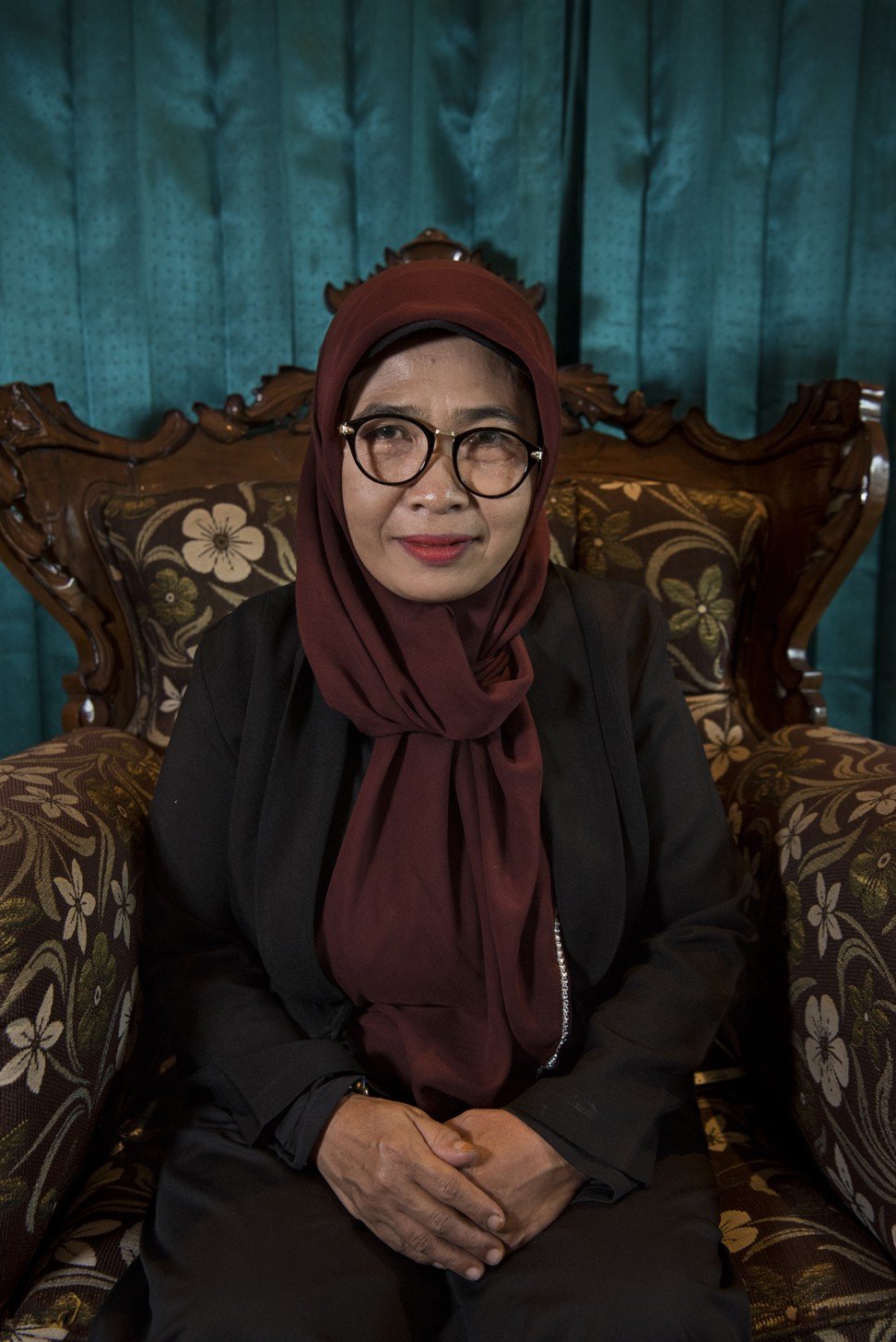
“It’s one of a few hotspots for maids in Indonesia; not because people here are poorer, but because success stories compel others to try and go abroad,” says Jejen Nurjanah, co-founder of Serikat Buruh Migran Indonesia, an NGO that provides support and legal advice to domestic helpers.
Having herself worked as a domestic helper, Jejen has experienced the dark side of the occupation.
We now assist hundreds of women in need. Their main problems are physical violence, labour exploitation ... wage arrears, confinement and bureaucratic trouble
“I was employed in Abu Dhabi when I fell from the second floor and broke my legs,” she says. “I was returned to my [receiving country] agent because the family refused to take care of me, and he locked me up. I couldn’t move, so he took the chance to grope me. He tried to rape me, but I threw hot tea in his face. I discovered how helpless we are abroad.”
On her return, after the intervention of police and a Philippine domestic helper organisation, Jejen met many women who had faced similar abuse and decided to do something about it.
“We now assist hundreds of women in need,” she says. “Their main problems are physical violence, labour exploitation – many don’t even get a weekly day off and are subjected to 18-hour workdays – wage arrears, confinement and bureaucratic trouble.”
Susilawati, 38, is still waiting to get paid. It has been more than a year since she returned to Sukabumi and her Malaysian employer owes her eight months’ wages, the equivalent of HK$24,100, an average annual income in Indonesia.
“There was some problem with the residence permit and I was detained for four days. The employer released me on bail, but I guess he was scared of the authorities and bought me a ticket back to Jakarta. He asked me to open a bank account at home so he could wire the money, but he never did,” claims Susilawati, who says she doesn’t even know the name of the ethnic Chinese man who had hired her. “It was something like Yu Su,” she mumbles.
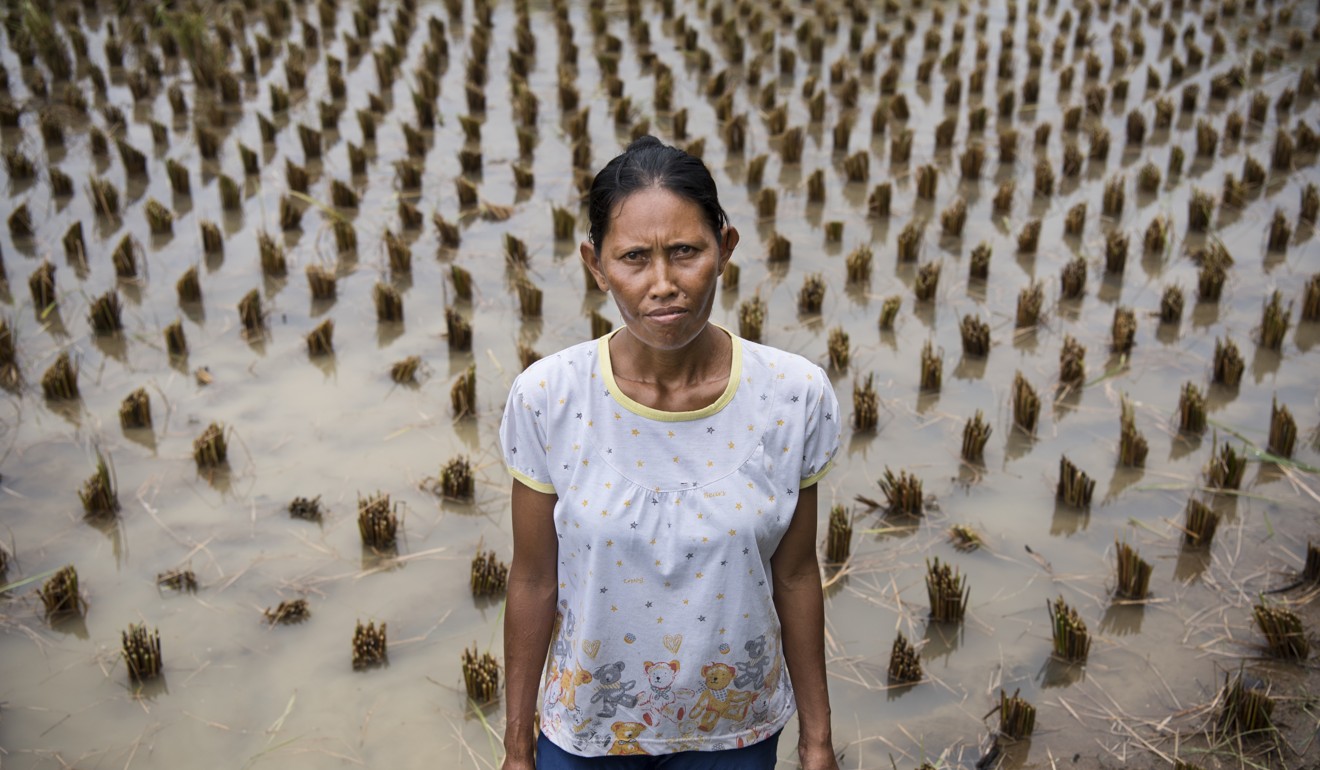
We are at Susilawati’s home, and she shows me her passport, which highlights one of her weaknesses in bright purple ink. “Illiterate,” it says on the page where she is supposed to sign her name. She has worked abroad for the past 18 years, but cannot read or write.
That lack of education is common among Indonesian domestic helpers and, Jejen acknowledges, makes them vulnerable to abuse.
“Everything was fine in the beginning,” Susilawati says. “They even increased my salary from 700 ringgit [US$181] to 1,500 ringgit. But there were a few hiccups. In 2005, my mother died and my employer didn’t allow me to come back home for the funeral.”
In 2011, “aside from my usual work, my employer demanded that I go to sell chickens in the market and made me work every day of the week. It was exhausting, because the couple has five children and I had to take care of them, too. And it was troublesome because the police found me in the market and I had no permit for such work”, says Susilawati, explaining that in such circumstances, she was forced by both her employer and police officers to lie and say it was a one-off. “A few times I was forced to lie to consulate authorities about my working conditions, too.”
She will never work as a domestic helper again, she says. A mother of four, Susilawati wants to stay at home and away from trouble. She and her husband now grow rice and bananas on a small plot of land. They sell a little cow’s milk to neighbours.
“When there is nothing to do in the field, my husband goes to a sand-processing plant as a labourer, so we can make anything between 20,000 and 100,000 rupiah per day,” she says. It’s enough to survive on.
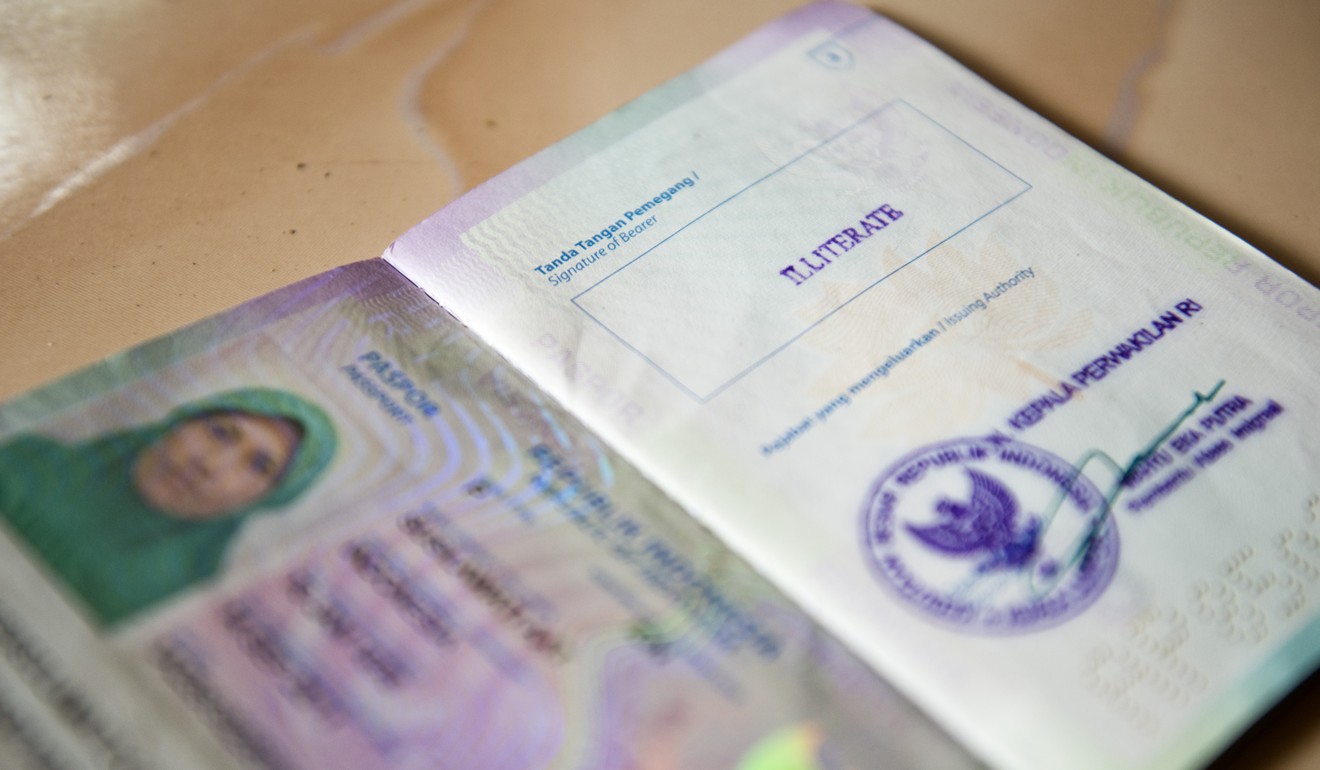
Not every domestic helper has a horror story to tell, however.
“There are horrible stories coming from everywhere, but those are still a minority,” Jejen says. “And we see an improvement of working conditions in many countries. Hong Kong and Taiwan are good examples, because they have approved regulations for domestic helpers. Having a strong legal framework helps the employers, the agents and the employees.”
Their jobs improve their families’ living standards and raise women’s status in society. But they’re also prone to abuse and exploitation. And that will only change when we empower women and sensitise employers
Isah sees improvements. “Minimum wages have also been slightly increased, and cases like Erwiana’s – she has turned to activism now – have helped to raise public awareness in the recipient countries.”
Irma Santika, 29, is looking forward to returning to Hong Kong, where she worked between 2015 and last year, when her contract ended.
“I will leave again at an auspicious date,” she says, when we visit her home. A shaman will determine when it’s the best time to leave. “The sooner, the better. But I think it won’t happen until May,” she smiles.
Like many others from Sukabumi, Irma was advised to leave by a family member. “One of my aunts has been working in Hong Kong for a decade and she said a girl like me could make much more money there than farming here,” she says. “She was right. At first I was worried about the language barrier and I travelled to Saudi Arabia, where the pay is bad and the work exhausting because homes are much larger and there is no weekly day off.”
Having worked for two years in Saudi Arabia, she returned to Indonesia, at the age of 16, to be married.
“Then I chose to seek an agent to arrange for the training Hong Kong requires,” she says. “It took almost three months to learn basic Cantonese and English, but my conditions improved greatly.”
Irma signed a labour contract in Indonesia and the agent paid her two million rupiah upfront. “In Hong Kong, the agent takes half of our salary for the first six months,” says Irma, who earned the minimum wage and appreciated the cleanliness and safety in the SAR. “And if we have trouble with our employer, the agent takes care of us and looks for a new job.
“Laws are enforced, the police are not corrupt and people treat women better. The only thing I disliked is that my contract forbade me from wearing the hijab and praying, so I had to do so secretly.”
Irma plans to work for another two years in the city before helping her husband open a home-appliances repair shop with the money she earns.
“Men here are lazy, so women have to go abroad and work hard,” she says, laughing.
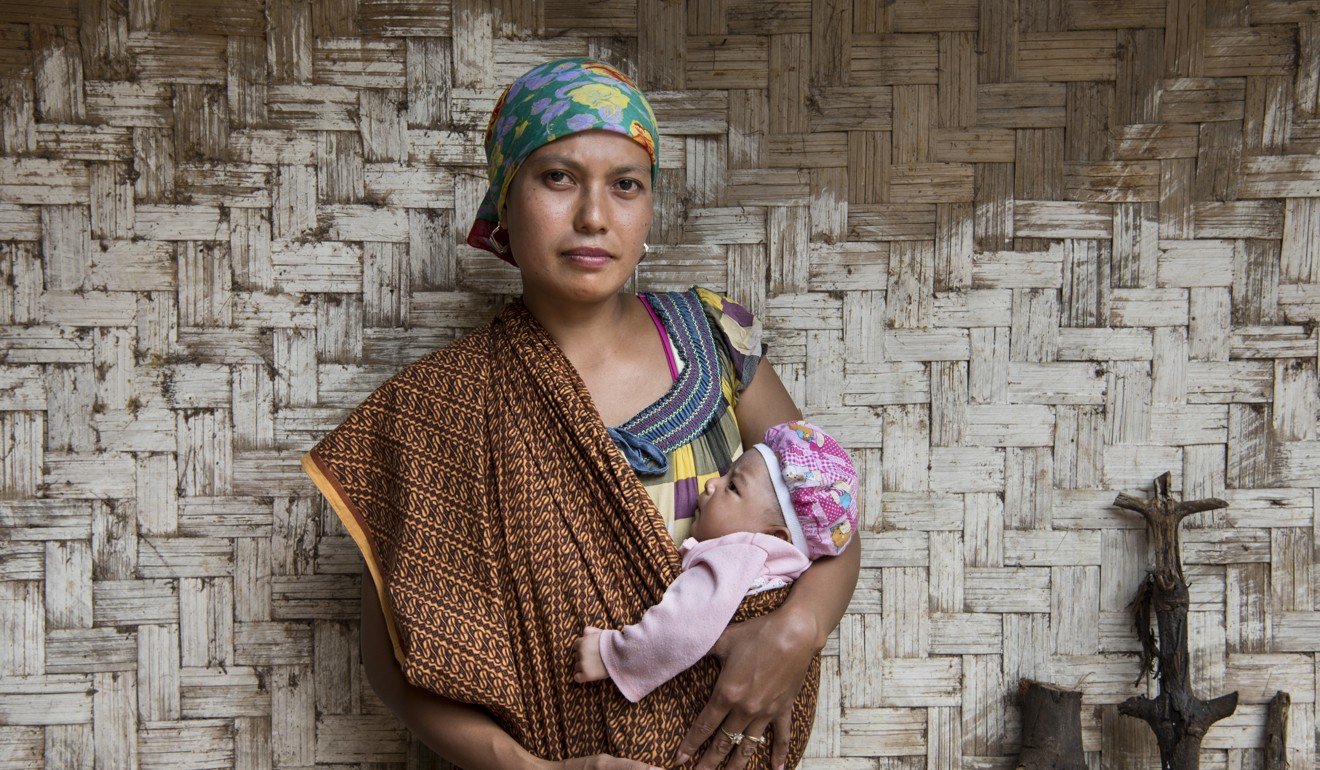
Yiyin, 33, would agree with that. She worked in Saudi Arabia and made a considerable amount of money by Sukabumi standards, but managed to save nothing.
“I had trouble with my husband,” she says of the man she married at the age of 14, “because he spent all the money I sent. At the beginning, I couldn’t understand how, then my brother told me that he had a second wife and was spending the money on her. I wanted to build a house and buy a car, but …”
Jejen has heard this story many times.
Men [in Indonesia] are lazy, so women have to go abroad and work hard
“Women work hard while men spend the money,” she says. “It’s free flow for them. But families are strained by the long separation and couples often break up. As usual, women suffer the worst.”
When she first left for Saudi Arabia, in 1990, Aliyah was a teenager – and an orphan. “I had nobody to support my education, so I dropped out in third grade and managed to get some family members to lend me money to go there,” she says. “I thrived.”
When she returned, she married, had a son and built a good house on the outskirts of Sukabumi. She became an inspiration for many other young women. However, when she returned from her second contract in the Middle East – this time in Kuwait – she did so to get divorced. “My first husband neglected our son and misused our savings,” she says.
Her second marriage was no more successful. “I was the only one earning a living, so I had to leave for Malaysia for another two years,” Aliyah says. “It seems men can’t wait that long without cheating on their wives.”
Again single, Aliyah returned to Saudi Arabia. And there, she says, her life turned upside down.
“I had bad luck and jumped employers a few times” Aliyah recalls. “At the home of one of them, I met a Filipino man who worked in construction and who I could talk to, because he had been working in Malaysia and spoke Bahasa.”
They started a relationship and she ran away from the house in which she worked. A week later, they married. The couple rented a flat and Aliyah gave birth to a girl.
“I had to work illegally and hide from the authorities because I had no contract, but everything was fine for almost four years,” says Aliyah, who was eventually caught and repatriated.
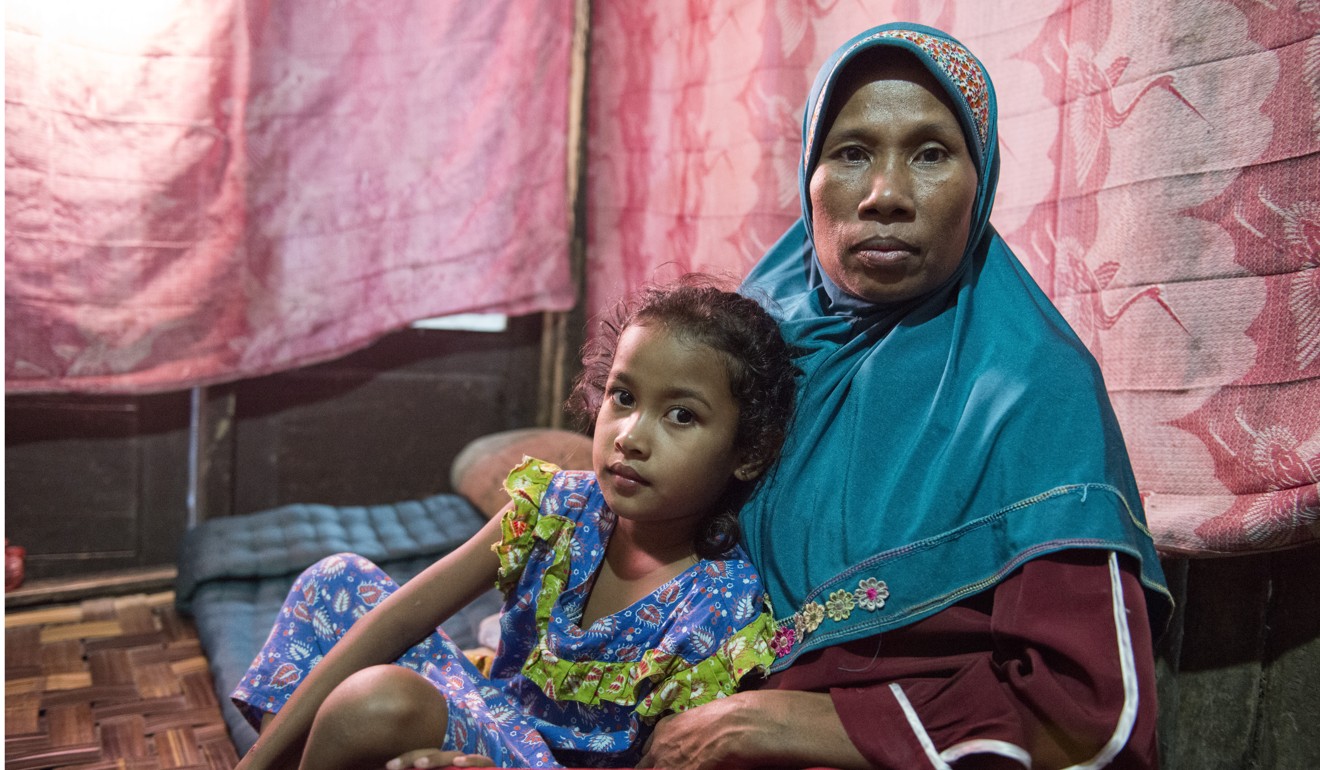
When she returned to Sukabumi last year, Aliyah found that her house was no longer hers.
“My brother had sold it without my consent,” she says. “And he had already spent the money.” And then her Filipino husband disappeared, too. “We had kept in touch for a while, but one day I found that his phone was out of service and I have had no news from him since.”
In June last year, Aliyah decided to go back to work as a domestic helper, but failed to pass the medical examination Jakarta-based agents insist upon before any training is given. She was HIV positive.
“I have no idea how I got infected,” says Aliyah, crying. “I don’t know if my husband has it. I am just happy that my daughter is free from it.”
They live together now in a wooden shack, a far cry from the comfortable house Aliyah worked so hard to build. She is estranged from her now-married son, and things are getting worse.
“I have so many health issues that I can’t stand for a long time, I can’t work, and even small scratches” – she points to one on her knee – “don’t heal and become a real problem.” Aliyah is getting no antiretroviral medication and often feels unwell.
Families are strained by the long separation and couples often break up. As usual, women suffer the worst
In Jejen’s opinion, Aliyah is a good example of how the personal lives of domestic helpers are shattered by repeated trips abroad. “And we see a worrisome trend: girls are endangered at an earlier age because many agents are faking documents or paying corrupt officials to amend originals so that 14- and 15-year-olds appear as adults,” says the activist. “Some manage to get these girls to the Middle East despite the ban, using smaller airports to avoid controls and bribing officials to turn a blind eye.”
Even so, Jejen believes domestic helpers abroad greatly help their local communities. “Their jobs improve their families’ living standards and raise women’s status in society,” she says. “But they’re also prone to abuse and exploitation. And that will only change when we empower women and sensitise employers.
“Most are common families in need of a helping hand and mean no harm. But they need to realise that maids are also humans with families, and deserve to be treated as such.”

